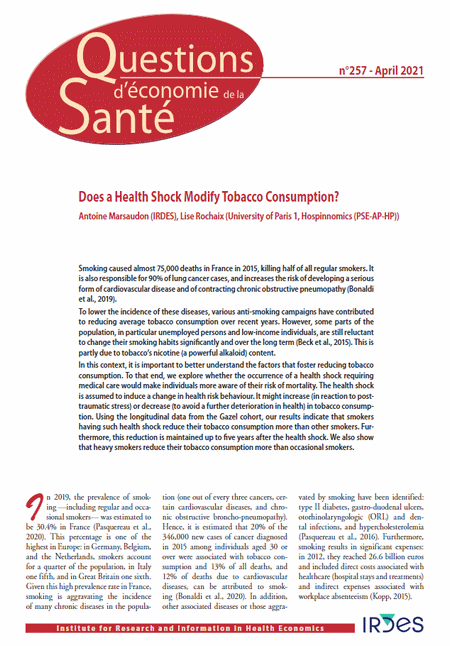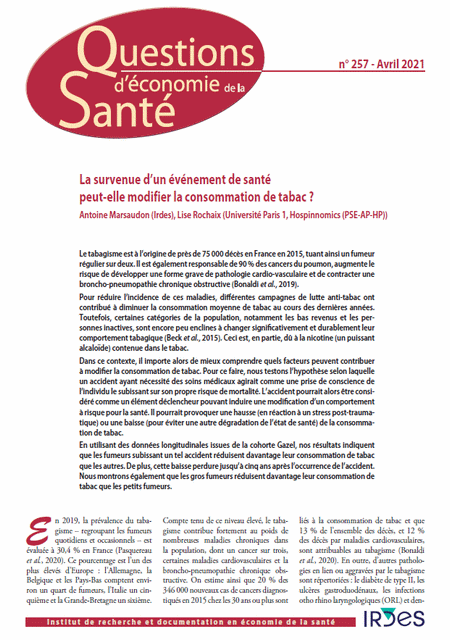Does a Health Shock Modify Tobacco Consumption?
Marsaudon A. (IRDES), Rochaix L. (University of Paris 1, Hospinnomics (PSE-AP-HP))
Questions d'économie de la santé (Issues in Health Economics) n° 257 - April 2021
ABSTRACT
Smoking caused almost 75,000 deaths in France in 2015, killing half of all regular smokers. It is also responsible for 90% of lung cancer cases, and increases the risk of developing a serious form of cardiovascular disease and of contracting chronic obstructive pneumopathy (Bonaldi et al., 2019). To lower the incidence of these diseases, various anti-smoking campaigns have contributed to reducing average tobacco consumption over recent years. However, some parts of the population, in particular unemployed persons and low-income individuals, are still reluctant to change their smoking habits significantly and over the long term (Beck et al., 2015). (…)
In this context, it is important to better understand the factors that foster reducing tobacco consumption. (…) Using the longitudinal data from the Gazel cohort, our results indicate that smokers having such health shock reduce their tobacco consumption more than other smokers. Furthermore, this reduction is maintained up to five years after the health shock. We also show that heavy smokers reduce their tobacco consumption more than occasional smokers.
See also Questions d'économie de la santé n° 257 in French: La survenue d'un événement de santé peut-elle modifier la consommation de tabac ?

